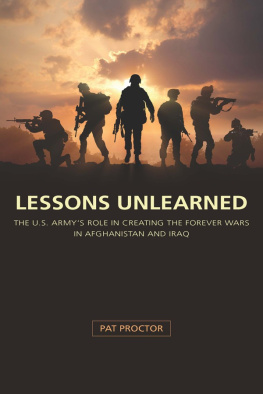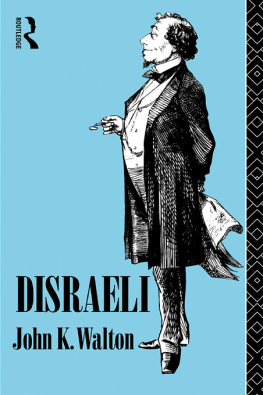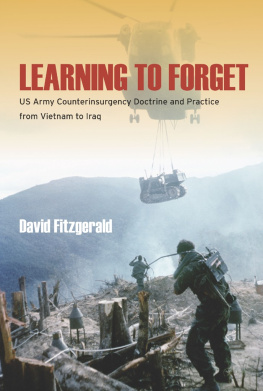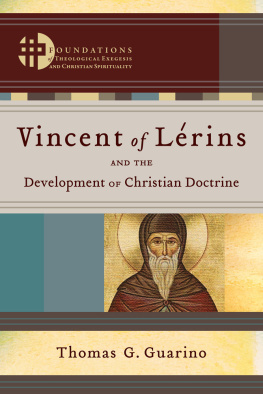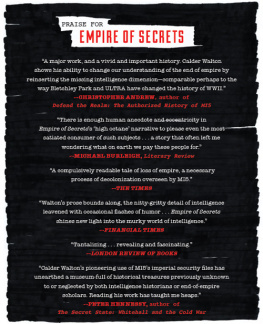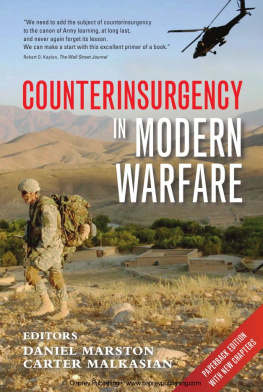
This edition is published by PICKLE PARTNERS PUBLISHINGwww.picklepartnerspublishing.com
To join our mailing list for new titles or for issues with our books picklepublishing@gmail.com
Or on Facebook
Text originally published in 2011 under the same title.
Pickle Partners Publishing 2015, all rights reserved. No part of this publication may be reproduced, stored in a retrieval system or transmitted by any means, electrical, mechanical or otherwise without the written permission of the copyright holder.
Publishers Note
Although in most cases we have retained the Authors original spelling and grammar to authentically reproduce the work of the Author and the original intent of such material, some additional notes and clarifications have been added for the modern readers benefit.
We have also made every effort to include all maps and illustrations of the original edition the limitations of formatting do not allow of including larger maps, we will upload as many of these maps as possible.
HEADED THE WRONG WAY: THE BRITISH ARMYS PAINFUL RE-ACQUAINTANCE WITH ITS OWN COIN DOCTRINE IN SOUTHERN IRAQ
By
Major Thomas E. Walton Sr.
TABLE OF CONTENTS
Contents
TABLE OF CONTENTS
REQUEST FROM THE PUBLISHER
ABSTRACT
The purpose of this research was to obtain a historically rooted understanding of the development, application, and adaptation of the British COIN approachone from which the US has borrowed heavily. It focuses upon those factors which interfere with timely, adaptive application of current COIN doctrine as soon as the warning signs of insurgency present themselves. The price of failing to do so in terms of blood and treasure has been widely proclaimed daily in the news media during the past decade of American and British involvement in Iraq and Afghanistan.
Authors on both sides of the Atlantic have already made much of the US Armys failure to capture COIN lessons from Vietnam and its abandonment of COIN education in its schools after the 1970s. For this reason, most American commanders went into Iraq with no doctrinal guide for COIN, a deficiency corrected only after painful reflection on the characteristics of the environment and the inefficacy of the conventional methods they initially employed. The British Army, on the other hand, went into Iraq with a COIN doctrine revised five times since the completion of its successful operations in Malaya, 1948-1960, including a version published only two years prior to entry into Iraq. Why did the British Army struggle with identifying insurgency and application of its own corresponding doctrine?
ACKNOWLEDGMENTS
I am indebted to the leadership and staff of the Command and General Staff College for including the COIN Scholars Program (now titled the Art of War Scholars program) as an alternative track within Intermediate Level Education. This program went far beyond anything in my previous military experience in driving home the distinction between training and education, as well as the pre-eminent importance of the latter. Furthermore, it made me an avid reader of military history and helped me understand its importance as a component of any aspiring leaders education.
I am tremendously indebted to Doctor Daniel Marston for the manner by which he engaged me and my fellow scholars in every seminar, making it nigh impossible not to read the vast volumes of material provided to read ahead. It was at times painful, but rich with many illuminating moments. I am also extremely grateful for his guidance and encouragement in ensuring I completed this thesis. Doctors Mark Hull and Charles Heller aided and abetted him in instilling an appreciation and understanding for military history. Marine Corps veteran of the Vietnam War and avid historian, Mr. Wilburn Meador, also inspired me.
The opportunity to speak with others who actively participated in epic periods of military history, such as Medal of Honor recipient Roger H. C. Donolon, further served to breathe life into previous campaigns and drive home there relevance to current conflicts. The opportunity to speak to British veterans of campaigns in Malaya and Oman while conducting research in the Britain greatly aided in illuminating those campaigns along with the COIN principles that emerged and evolved within them.
Others worthy of heartfelt appreciation include the incredible assembly of military leaders, policy makers, and academics from both sides of the Atlantic who deemed the accurate preservation of their experience for future histories of current conflicts important enough to take time from their busy schedules to participate in oral history interviews.
I owe a particular debt of gratitude to British Colonel Alexander Alderson for providing me the benefit of his in-depth analysis of British COIN doctrine, including its frank assessment of both British and American foibles in Iraq, contained in the doctoral dissertation he completed for Cranfield University in 2009. His willingness to discuss his research and experiences with me during my visit to the United Kingdom in March/April 2011 was invaluable as well.
Finally, by no means least among those to whom I am indebted is my wife, Michiyo, my most devoted critique, who cheers me in success, consoles me in failure, and never allows me to dwell too long on either one.
ACRONYMS
AQIal-Qaeda in Iraq
BATTBritish Army Training Team
COINCounterinsurgency
CotKCharge of the Knights
CPACoalition Provisional Authority
DDCDhofar Development Council
DLFDhofar Liberation Front
DWECsDistrict War Executive Committees
FLNFront de Libration National
GOIGovernment of Iraq
GOMGovernment of Malaya
IAIraqi Army
ISFIraqi Security Forces
JAMJaish al-Mahdi
MCPMalayan Communist Party
MiTTMilitary Transition Team
MND(SE)Multinational Division (SE)
MNF-IMultinational Force-Iraq
MRLAMalayan Races Liberation Army
PDRYPeoples Democratic Republic of Yemen
PFLOPopular Front for the Liberation of Oman
PFLOAGPopular Front for the Liberation of the Occupied Arab Gulf
PICProvincial Iraqi Control
SAFSultans Armed Forces
SASSpecial Administrative Sections (French, Used in Algeria)
SASSpecial Air Service (British, Used in Oman)
SEPsSurrendered Enemy Personnel
SSRSecurity Sector Reform
SWECsState War Executive Committees
USUnited States
ILLUSTRATIONS
Figure 1. The Federation of Malaya at the time of the Emergency
Figure 2. Algeria during French Counterinsurgency of 1954-1962
Figure 3. The Sultanate of Oman
Figure 4. Dhofar, Southern Oman
Figure 5. Fortified Lines in Dhofar
Figure 6. Iraq
CHAPTER 1 INTRODUCTION
Research Question
The research question that guides this thesis is, Why did an army with a comprehensive counterinsurgency (COIN) doctrine, based on a wealth of practical experience and well-developed theory, struggle with the application of that doctrine in southeastern Iraq during Operation TELIC {1} in Iraq?
Related questions include the following. Was the conflict in Iraq an insurgency? What reasons, if any, explain any delay in the identification of it as such by the British? Was current British COIN doctrine valid for insurgency in Iraq? If the doctrine was valid, what explanations are there for any lapse between the time the British characterized the conflict as an insurgency and the time they applied the corresponding doctrine?


